Prøve GULL - Gratis
Winter Food For Wildlings
Cage & Aviary Birds
|October 18, 2017
Most fanciers feed and love to watch their garden bird visitors, but we’re not all acquainted with the latest nutrional and practical advice on what and how to feed. Writing specially for Cage & Aviary Birds, JAMIE WYVER of the RSPB talks through some cold-weather recommendations

AS THE weather turns chillier, many of us will be putting out extra food for the wild birds visiting our gardens, balconies and other outdoor spaces.
At the RSPB, we’re often asked what the best types of food are to fill bird tables and feeders. Obviously, different species have differing needs. There are the insect eaters: dunnocks, wrens, robins and starlings. Then there are birds that specialise in seeds, such as finches and sparrows. Blackbirds and thrushes will favour fruit and berries.
In addition, many birds will switch their diets as the seasons change: tits that will have fed on insects throughout the summer will now be looking for seeds and nuts.
For your bird-feeding station really to benefit these feathered visitors, you’ll want to provide foods that they can access with minimum effort. Ideally, their feeding activity should be quick and provide maximum nutrition for the energy used in finding and eating the food. For example, seed-eating birds will primarily choose their food based on how long it’ll take to remove the husk and how quickly the seed can be digested. Generally, the smaller the bird’s beak, the smaller their preferred seeds will be.
To avoid waste and a build-up of unwanted food, use seed mixes on the ground, because the birds using your feeders may only prefer certain seed types. It’s best just to use one type of seed, such as black sunflowers, in a hanging feeder. The following list will help you choose what’s best for your local wild birds.
Mealworms – live or dried
Denne historien er fra October 18, 2017-utgaven av Cage & Aviary Birds.
Abonner på Magzter GOLD for å få tilgang til tusenvis av kuraterte premiumhistorier og over 9000 magasiner og aviser.
Allerede abonnent? Logg på
FLERE HISTORIER FRA Cage & Aviary Birds
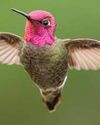
Cage & Aviary Birds
The World's Best-Known Hummingbird?
Intensively studied, the gem-like Anna’s hummingbird is a welcome visitor to the gardens of America’s most populous state: California. Bill Naylor investigates its life history
5 mins
December 18, 2019
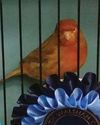
Cage & Aviary Birds
The charm of the English Cinnamon
Despite its long and complicated history, the true Cinnamon canary is still with us – in the hands of a tiny group of breeders. DONALD SKINNER-REID reckons it deserves wider appreciation
4 mins
December 24, 2019
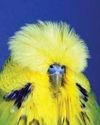
Cage & Aviary Birds
Spangles: a personal overview
FRED WRIGHT relates a budgie story of over-exploitation, consequent problems and abundant potential for the future
4 mins
December 24, 2019

Cage & Aviary Birds
New converts to old breeds
Old and rare canaries have a reputation for adding fresh interest and challenge to the hobby. PETE HOOK and NICK JOY agree, and explain the birds’ charm to Dave Brown
3 mins
December 24, 2019

Cage & Aviary Birds
Themed aviaries are a hit with the public at annual Stafford show
DECORATIVE AVIARY DISPLAYS from a CBS and an online bird keeping advice group were voted in the top three by visitors for the inaugural Stafford Aviary Competition.
1 mins
December 18, 2019
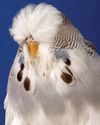
Cage & Aviary Birds
Pieds with potential
More than just a lesser variety, the dominant pied will introduce challenge and change into most studs, reckons CLIVE WAKEMAN. Here he discusses pairings to try and others to avoid
3 mins
December 18, 2019
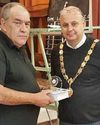
Cage & Aviary Birds
Club News
Welcome to the club and show pages – the bit that’s all about you Results: convention, specialist & rare and Breeder of the Year
1 min
December 18, 2019
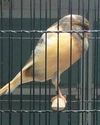
Cage & Aviary Birds
Canaries Month by Month:
With Christmas around the corner, BRIAN KEENAN is well into his winter programme, and reckons he might deserve a nice outcross
4 mins
December 18, 2019
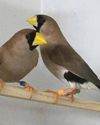
Cage & Aviary Birds
Smart Choice, Docile Nature
Dave Brown welcomes the masked grassfinch to his birdroom and shares advice on this lovely Australian species
3 mins
December 04, 2019
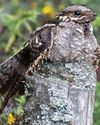
Cage & Aviary Birds
The truth about the ‘flying toad'
Odd local names and weird superstitions can’t hide the beauty and elegance of the nightjar, a species that has made a fascinating subject in a few zoo collections, reveals BILL NAYLOR
5 mins
December 04, 2019
Translate
Change font size
